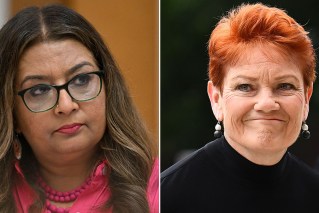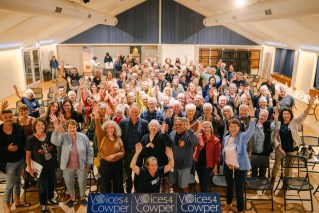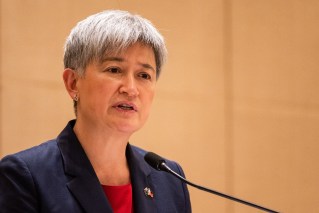‘What is their plan B?’: Alarm as support for Voice falls
Source: TND
Campaigners behind the ‘yes’ case for an Indigenous Voice to Parliament are doing a “disappointing” job, a leading marketing expert has warned, adding time left for a turnaround is short.
It came as a key independent senator urged the Albanese government to start thinking about a “plan B” for improving Indigenous wellbeing, as support for the Voice drops.
According to the latest Newspoll, national support for the referendum has dropped to 41 per cent, with 38 per cent of female voters and 45 per cent of men backing the constitutional change.
Support for the ‘no’ vote in the regions has grown to 62 per cent, with only 31 per cent in favour of the Voice.
Australian National University marketing lecturer Andrew Hughes described the ‘yes’ campaign as disappointing.
“They’ve started off from an emotional perspective, rather than starting off logical and progressing to emotional,” he said on Monday.
Dr Hughes said there was time to get the campaign back on track but it needed to be done quickly.
“I do wonder if it is too late; I suspect they will kick off hard soon,” he said.
Dr Hughes said the public wanted to see the detail, with people more distrustful of governments after the COVID-19 pandemic. He said the campaign strategy was the wrong type to run in this context.
Dr Hughes suggested the ‘yes’ camp could provide information about potential models for the Voice.
The government insists the composition, powers, functions and procedures of the Voice will not be laid out by the parliament until after the referendum.
On Tuesday, the Australian Electoral Commission will publish the official ‘yes’ and ‘no’ cases on its website, before booklets are posted to voters. Neither side’s arguments will be edited for accuracy before being published.
Opposition Indigenous spokeswoman Jacinta Nampijinpa Price confirmed the ‘no’ campaign had submitted its case to the AEC for the pamphlet on Friday. Senator Price said the essay offered a simple and clear message.
“My colleagues and I believe Australians deserve details, consultation and transparency – instead they’ve been given a rushed process and a proposal that is risky, full of unknowns and enshrines division in the constitution,” she said on Monday.
Earlier on Monday, Liberals for Yes campaign working group member Sean Gordon noted former prime minister John Howard had committed to constitutional recognition.
“In 2017, First Nations Australians gathered in Uluru and decided how we would like to be recognised: We asked to be recognised through the creation of a new body that would give voice to our people,” he said.
“In 2023, every Australian will have the opportunity to vote Yes for a more reconciled nation and a better future for us all.”
Indigenous Australians Minister Linda Burney said drafting the official ‘yes’ case had been a collaborative process taking in the best arguments in support of the Voice across the parliament.
“A voice is an idea many years in the making and many Indigenous Australians have put a great deal of hard work into achieving constitutional recognition,” she said.
The Coalition supports legislating local and regional voices, but not putting a voice in the constitution.
Meanwhile, Tasmanian independent senator Jacqui Lambie said the drop in support for the Voice was concerning, especially as there was a great need to reduce violence and improve conditions for Aboriginal and Torres Strait Islanders.
“I want to know what is their plan B if this doesn’t get up,” she told Sky News.
“They had better come up with a back-up plan.”
-with AAP







